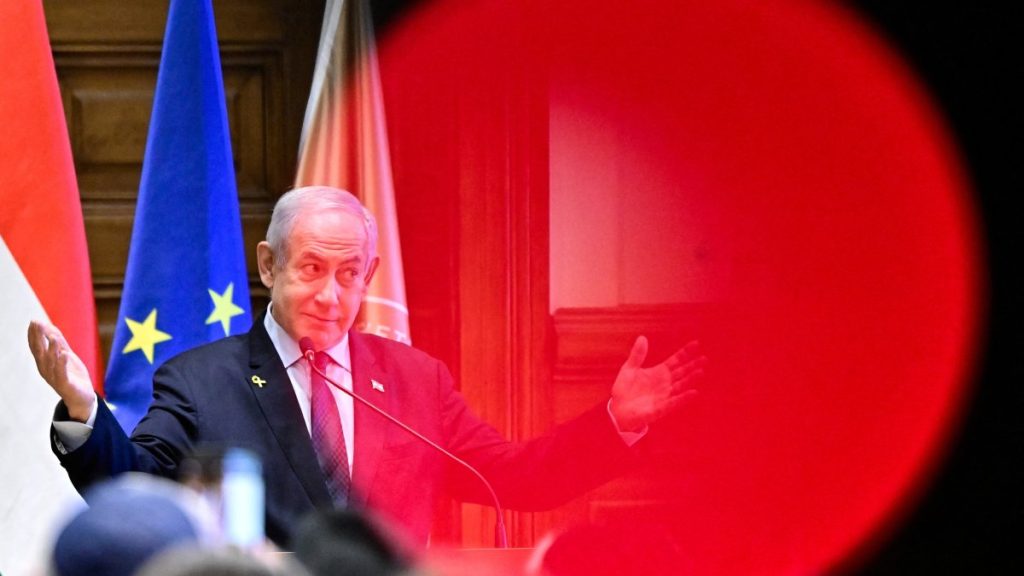Not long after Benjamin Netanyahu assumed office as prime minister of Israel for the first time in 1996, he was presented with a policy recommendation by a highly influential neoconservative think tank specializing in U.S.-Israeli relations. Titled “A Clean Break: A New Strategy for Securing the Realm,” the report stated that previous Israeli governments, especially Yitzhak Rabin’s, had been naive to believe in the notion of “peace for land,” and that “early adoption of a bold, new perspective on peace and security” was “imperative for the new prime minister.” Crucially, this new perspective would include “promoting Western values and traditions,” by which the authors of the report (referred to as “prominent opinion makers”) apparently meant slaughtering large numbers of people as a method of “reestablishing the principle of preemption.”
It is worth noting, in this connection, that the promotion of “Western values and traditions” seems to have come back in style in recent years, coinciding roughly with the second and third comings of Netanyahu. This emerging trend was initially described as a reaction to the “wokeism” of the last decade in the West, as though “Western values and traditions” represented a kind of resistance to that unique form of moral degeneracy. And the reactionary moment has been seized by the most banal figures imaginable, from psychologist Jordan Peterson to billionaire Elon Musk, who insist on the importance of those noble ideals even when discussing topics far removed from wokeism. In particular, the growing anti-immigration sentiment in the West has been amalgamated with a fervent commitment to upholding those imagined values and traditions which are regarded as fundamentally incompatible, especially with the ways of those Muslims who apparently have made it their life’s mission to destroy everything the West stands for.
The premise is quite extraordinary, of course. Why would Muslims want to destroy everything the West stands for? What would motivate them to put themselves in danger of annihilation at the hands of the “civilized” West? And, most importantly, who exactly are they? The domestic audience in the West is told that the threat they pose is imminent, and that it may even come in the form of the mere presence of ordinary people from Muslim backgrounds in the streets of Europe and North America. By not acting against that presence, the West would fail to establish “the principle of preemption” that was once recommended to Netanyahu. And, naturally, he expects the rest of the alliance to fulfill the requirements of that principle by distancing themselves from Muslims and their perceived “allies” who dare to speak against Israel’s genocide in Gaza. After all, this is what their commitment to “Western values and traditions” demands of them.
Indeed, when viewed in this light, the recent detention of a 13-year-old at an anti-genocide demonstration in Berlin, among many other similar incidents across Europe and North America, makes much more sense. Just the other day, German Ambassador to Israel Steffen Seibert described the twinning of Berlin and Tel Aviv as “a perfect match based on our common values.” Considering how many 13-year-olds have been murdered by Tel Aviv in the last 18 months, it is hard to dispute the accuracy of that description. Both Germany and Israel appear to implement “the principle of preemption” in their own ways.
If “Western values and traditions” are what bind the alliance, then Western media must surely count among their most faithful expressions. The consistent erasure of the dead, the ritual repetition of Israeli lies, the careful rephrasing of bombings as “strikes on suspected targets,” and so on – all of it carried out under the solemn banner of “professional journalism.” Not quite Der Stürmer, perhaps – there are fewer cartoons and more satellite imagery today. Yet the function is unmistakably similar. Der Stürmer’s head editor, Julius Streicher, was hanged at Nuremberg in 1946 not for inventing the Final Solution, but for helping to make it seem necessary. He published editorials, interviews and official statements. He was not as careful with his language, of course, but he too was instrumental in manufacturing consent – or so it must have been judged.
And if that judgment means anything, that is, if the architects of “postwar justice” believed that a newspaper editor could be held responsible for such a role, then the question for those who inherit that legacy is not whether the comparison is comfortable, but whether the standard still applies.


